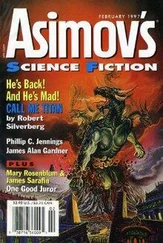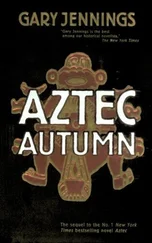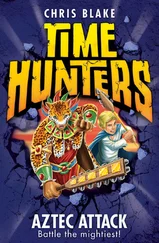Gary Jennings - Aztec
Здесь есть возможность читать онлайн «Gary Jennings - Aztec» весь текст электронной книги совершенно бесплатно (целиком полную версию без сокращений). В некоторых случаях можно слушать аудио, скачать через торрент в формате fb2 и присутствует краткое содержание. Жанр: Старинная литература, на английском языке. Описание произведения, (предисловие) а так же отзывы посетителей доступны на портале библиотеки ЛибКат.
- Название:Aztec
- Автор:
- Жанр:
- Год:неизвестен
- ISBN:нет данных
- Рейтинг книги:4 / 5. Голосов: 1
-
Избранное:Добавить в избранное
- Отзывы:
-
Ваша оценка:
- 80
- 1
- 2
- 3
- 4
- 5
Aztec: краткое содержание, описание и аннотация
Предлагаем к чтению аннотацию, описание, краткое содержание или предисловие (зависит от того, что написал сам автор книги «Aztec»). Если вы не нашли необходимую информацию о книге — напишите в комментариях, мы постараемся отыскать её.
"Anyone who reads, anyone who still lusts for adventure or that book you can't put down, will glory in Aztec."--Los Angeles Times
Aztec
Aztec
Aztec — читать онлайн бесплатно полную книгу (весь текст) целиком
Ниже представлен текст книги, разбитый по страницам. Система сохранения места последней прочитанной страницы, позволяет с удобством читать онлайн бесплатно книгу «Aztec», без необходимости каждый раз заново искать на чём Вы остановились. Поставьте закладку, и сможете в любой момент перейти на страницу, на которой закончили чтение.
Интервал:
Закладка:
But they did not see it close. The fat man quickly vanished, while a host of much leaner men suddenly stood up from the broken buildings and wreckage all about, hurling javelins. Though many of the marauders were felled in that moment, some pressed forward, only to meet other warriors armed with maquahuime, and others quailed backward, where they were showered with arrows. All of them who survived that surprising and firm defense retreated even farther, all the way back to the mainland. I am sure they reported the apparition of the well-fed and still-feeding man—and I am sure Cortés laughed at that pathetic bit of bravado on our part—but they also reported, quite matter-of-factly, that the rubble of the city provided even better defensive positions for its occupants than the city would have done, had it been left entire.
"Very well," said the Captain-General, according to later report. "I had hoped to save at least some of it, for the amazement of our countrymen who will come later as colonists. But we will level it... level every standing stone and timber of it... level it until not even a scorpion has a hiding place from which to creep upon us."
Of course that is what he did, and this is how he did it. While the boats' cannons continued to pound the northern half of the city, Cortés wheeled several of his shore cannons along the southern and western causeways; they were followed by fighting men, some on horses, some on foot, accompanied by staghounds; and those were followed by many more men armed only with mallets and axes and prybars and battering beams. First the cannons were employed, to blow down everything possible in front of them, and to kill our warriors in hiding, or at least to keep them crouching harmlessly. Then the soldiers advanced into the area of devastation; when our warriors rose up to fight, they were ridden down by the horsemen or overrun by the foot soldiers. Our men fought bravely, but they were weak from hunger and half dazed by the cannonade they had just endured, and they invariably died or had to withdraw deeper into the city.
Some of them tried to remain undetected in their hiding places while the fighting swept on past them, hoping that when the enemy was later off guard they could make just one killing javelin throw or maquahuitl stroke before they were slain. But none got that chance; they were always quickly unearthed; that was what the soldiers had brought the dogs for. Those huge staghounds could sniff out a man, however securely hidden, and if they themselves did not rend him apart, they disclosed his position to the soldiers. Then, as the area was cleared of defenders and danger, the working parties moved in with their tools of demolition, and they cleared whatever was left. They tore down houses and towers and temples and monuments, and they set afire everything that would burn. When they were done, there remained only a flat and featureless plot of ground. That would be one day's work. On the following day, the cannons would be able to advance unimpeded across that cleared area and batter a new portion, to be followed by the soldiers and the dogs, then the demolishes. And so, day by day, the city diminished a little more, as if afflicted by The Being Eaten by the Gods. We in the yet unafflicted sections of the city could stand on our rooftops and watch the progress of the leveling, and its approach toward us.
I remember the day the wreckers reached The Heart of the One World. First they amused themselves by shooting fire arrows at those tremendous feather banners which, although sadly tattered, still floated majestically overhead, and the banners, one by one, disappeared in flares of flame. But many more days were required for the destruction of that city within a city—the temples, the tlachtli court, the skull rack, the palaces and court buildings. Though the Great Pyramid was already a gnawed ruin, and could afford no stronghold or concealment worth Cortés's concern, he must have felt that, simply because it was Tenochtítlan's most magnificent and distinguishing symbol, it had to come down. It did not come down easily, even when swarmed over by hundreds of workmen with heavy steel tools, but at last it yielded, layer by layer, revealing the older pyramids inside it, each of them smaller and more crudely built, and they came down too. Cortés had his men work rather more gently and carefully when they began dismantling the palace of Motecuzóma Xocoyatl, for he obviously expected to find the nation's treasury reinstalled in the thick-walled chambers there. When he did not, he let the demolition proceed with a vengeance.
I remember also the burning of the great menagerie just outside the plaza's fragmented Snake Wall, for that day I was watching from the roof of a house close enough that I could hear the bellowing and roaring and howling and screeching of its occupants as they burned alive. True, the menagerie's population had been reduced by our having been forced to eat a good number of its occupants, but still there remained many wondrous beasts and birds and reptiles. Some of them may now be irreplaceable, should you Spaniards ever decide to build a similar showplace. For example, at that time the hall of animals exhibited a totally white jaguar, a rarity we Mexíca had never seen before and no one may ever see again.
Cuautemoc, well knowing the weakness of his warriors, had intended that they should merely fight a defensive withdrawal, delaying the enemy's advance insofar as possible, and slaying as many invaders as they could in the process. But the warriors themselves were so outraged by the desecration of The Heart of the One World that they exceeded their orders, and their anger gave them a surge of strength, and they several times emerged from the wreckage around the plaza, shouting war cries and pounding their weapons on their shields, to take offensive instead of defensive action. Even our women were infuriated and joined in, flinging down from rooftops nests full of wasps, and fragments of stone, and other things less mentionable, upon the despoilers.
Our warriors did kill some of the enemy soldiers and wreckers, and perhaps somewhat slowed their work of destruction. But a greater number of our men died in the doing so, and they were every time beaten back. Nevertheless, to discourage their harassment, Cortés sent his cannons continuing on to the north, blasting away more of the city, and his soldiers and dogs and work parties had to follow the cannons, to level what they left. It was because they moved on that they neglected to tear down this House of Song in which we sit today, and some few other buildings of no particular account in this southern half of the island.
But not many buildings were left, not anywhere, and those few stuck up from the prevailing wasteland like the last few, wide-apart teeth in an old man's gums, and my house was not among them. I suppose I should congratulate myself that when my house fell, I was not inside it. By that time, the city's entire remaining population was sheltering in the Tlaltelólco quarter, and in the very middle of it, to be as far as possible from the continuous barrage of cannon projectiles and fire arrows from the circling battle boats. The warriors and the stronger survivors lived in the open of the marketplace, and all the women and weaker folk were crammed into the houses already crowded by the neighborhood's resident families clumped together for refuge. Cuautemoc and his court occupied the old palace that had once belonged to Moquihuix, the last ruler of Tlaltelólco when it was still an independent city. As a lord, I also was accorded a small room there, which I shared with Béu. Although she had again protested against being moved from her home, I had carried her thither in my arms. So, with Cuautemoc and many others, I stood atop the Tlaltelólco pyramid, watching, on the day Cortés's wreckers moved into the Ixacualco quarter where I had lived. I could not see, through the clouds of cannon smoke and the dust of pulverized limestone, exactly when my own house went down. But when the enemy departed at the day's end, the Ixacualco quarter was, like most of the island's southern half, a barren desert.
Читать дальшеИнтервал:
Закладка:
Похожие книги на «Aztec»
Представляем Вашему вниманию похожие книги на «Aztec» списком для выбора. Мы отобрали схожую по названию и смыслу литературу в надежде предоставить читателям больше вариантов отыскать новые, интересные, ещё непрочитанные произведения.
Обсуждение, отзывы о книге «Aztec» и просто собственные мнения читателей. Оставьте ваши комментарии, напишите, что Вы думаете о произведении, его смысле или главных героях. Укажите что конкретно понравилось, а что нет, и почему Вы так считаете.











